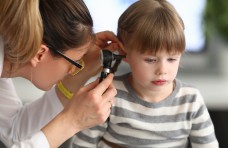1. Brazilians are among those who have adopted most specific behaviors to look after their microbiota, while also having a very poor knowledge of probiotics.
Brazil is probably one of the countries, along with Mexico, that is best educated about what you need to know and do to preserve your microbiota. Latin Americans are also very familiar with the terms “intestinal flora” (68% in Brazil and 73% in Mexico) and “vaginal flora” (52% in Brazil and 43% in Mexico). On the other hand, they are among those who have the poorest knowledge of probiotics. Only 39% know exactly what probiotics are (compared with 43% overall).
2. Brazilians are much more likely than the others to link certain health problems to their microbiota.
Of the 8 medical problems tested, a majority of Brazilians linked 5 with microbiota. For example gastroenteritis (64%), post-antibiotic diarrhea (64%) and urinary tract infections (60%).
3. Nearly 1 in 2 Brazilians (49%) had received explanations from their healthcare professional on how to maintain a balanced microbiota (compared to 44% overall).
On the other hand, they are less well informed about the negative consequences of antibiotics on their microbiota. Only 1 Brazilian in 3 had received recommendations from their healthcare professional on how to minimize the negative consequences of taking antibiotics on their microbiota (32%), or had been informed that taking antibiotics could upset their microbiota balance (32%). How doctors inform patients when prescribing antibiotics is a good illustration of how much still has to be done to make Brazilian patients aware of the risks of treatment in terms of microbiota imbalance.
Along with the Chinese (64%), Brazilians are among those who reported having adopted the most specific behaviors to preserve their microbiota balance (64% vs. 57% overall).
The Ipsos Panel conducted a major online international survey involving 6,500 individuals, surveyed between March 21 and April 7, 2023 in 7 countries: the United States, Brazil, Mexico, France, Portugal, Spain and China.
Data was collected using the quota method, which is the most commonly used sampling plan for obtaining a representative sample of a study population. The quota variables for each country were:
- gender
- age
- region
- socio-professional category
The survey population included 48% men and 52% women. The average age was 46.9 years. The sample of 6,500 individuals allowed a detailed analysis by age group: 18-24, 25-34, 35-44, 45-59, 60 and over.
The 26-question included:
- socio-demographic data
- assessment of knowledge of the microbiota
- the level of and desire for information from healthcare professionals
- identification and adoption of behaviors aimed at combating microbiota imbalance
- women’s level of knowledge, information and behavior with regard to the vulvovaginal microbiota
- health data



